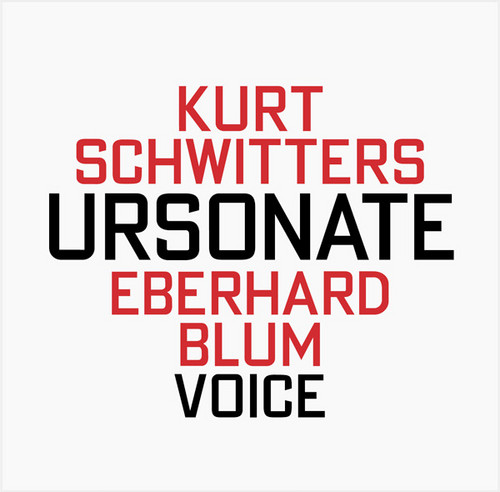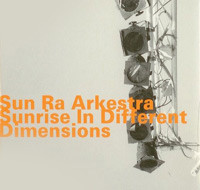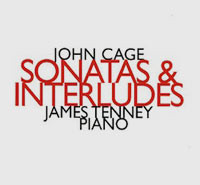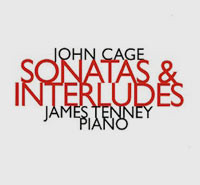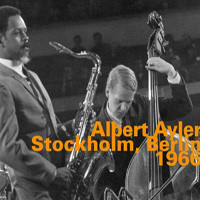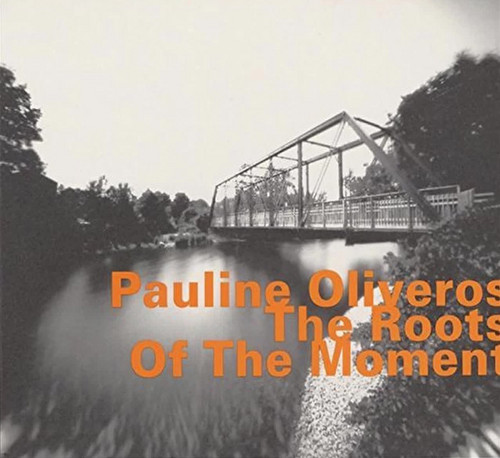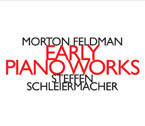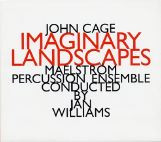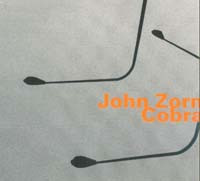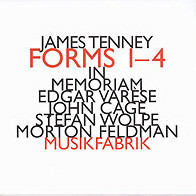Hat Hut Records
Independent New Music label from Switzerland. Founded in 1975 by Werner X. Uehlinger, it started as an avant garde jazz label. Nowadays the catalogue is very diverse, with a focus on contemporary composition and improvisation music. hatOLOGY is the cat# prefix for such Free Jazz and Improvisation Jazz.
Ursonate
Beginning in 1975, Eberhard performed Kurt Schwitters’s Ursonate over a hundred times (though he did not, as was incorrectly stated in an obituary that appeared in a Berlin newspaper [6], give the premiere). In addition to his work as a musician and vocal performer, Eberhard mastered the art of designing intelligently thought-through concert programs—“Positions of the modern” (1988), “Stations of musical modernism” (1989), “Stefan Wolpe and the musical avant-garde” (1990), “With other ears” (199…
Sunrise In Different Dimensions
This CD features a live concert by Sun Ra & the Arkestra in Switzerland. The only fault to the set is that the two drummers (Chris Henderson and Eric Walker) fail to swing and often sound wooden on the vintage standards, which might be due to the lack of a bassist. However, the nonet (which also includes Ra on piano and organ, tenor great John Gilmore, altoist Marshall Allen, baritonist Danny Thompson, the reeds of Kenneth Williams and Noel Scott, and trumpeter Michael Ray), despite its slightly…
Sonatas & Interludes
How rare, and valuable, it is to be able to experience one composer’s masterwork through the sensibility of another significant, stylistically distinct composer – via a performance that reveals unexpected aspects of both. that is to say, an approach to performance not as an act of self-conscious, flamboyant or dramatic interpretation, according to the concerns of technique, expression, and projection that are at the heart of an instrumentalist’s presentation of a musical score to an audie…
Music Of Changes
The title is a double pun. The score is the first that John Cage devised allowing the hexagrams of the I Ching to fully determin e how the music would procee d, event by event, gesture by gesture—the musical details (pitch, duration, dynamic s, density, tempi) being painstakingly, albeit fortuitously, derived through point-by-point con sultation from charts of possi bilities designed by the composer. (Christian Wolff, Cage’s young friend and musical associate, had presented Cage with a co…
Piano & Percussion Works
2011 release. Satoko Inoue is an experienced performer of Ferrari’s works and had a lively exchange of ideas with the composer, who was also present at the recording sessions. No wonder then that precisely those ideas of open work and its “anecdotal” interpretation were the ones that were most important to him – as such sounds were to him always abstract at the core, even if he first illustrated them in a very visual and associative way. Satoko Inoue writes: “We discussed, he explained ab…
Stockholm, Berlin 1966
Hard to believe that this far down the line there would still be unreleased recordings of Albert Ayler, never mind a full live set from the apex of his reign, the glorious 1966 tour of Europe, so I nearly did a double take when I first saw this title listed. The Berlin set which the CD is bundled with turned up in lesser fidelity and in the incorrect order on Revenant’s disputed Ayler box, but the Stockholm set has never even been booted and both receive their first release fully authorised by t…
Roots Of The Moment
For more than 50 years, Pauline Oliveros has been on a continuing mission: “... to explore new worlds, to seek out new life and new civilizations, to boldly go where no one has gone before.” If those words bring to mind the voyages of the Starship Enterprise from the television series Star Trek, the parallels are more than coincidental. In fact Pauline would be as able a captain of any Starship in the fleet of the United Federation of Planets. A bit of a difference here though, for Pauline Olive…
Early Piano Works
For each ecstatic instant / We must an anguish pay / In keen and quivering ratio / To the ecstasy." It almost seems as if Emily Dickinson could have been describing the early piano music of Morton Feldman when she wrote those lines nearly one-hundred-and-fifty years ago. Certainly, the uncommonly short, acutely concentrated, unadorned and vulnerable pieces Feldman composed between 1950 and 1964 each span just an “ecstatic instant” — a brief, heightened experience measured not according to time b…
Imaginary Landscapes
Improvising guitarist Derek Bailey has expressed the belief that «If you’re going to explore uncharted territory, it’s okay to carry a compass, but not a map.» It’s obvious; if you know where you’re going and have plotted the most efficient or scenic course to get there, you may arrive without mishap but deprived of much of the drama, the danger, the unpredictable uniqueness of the journey. In the years following 1950, John Cage walked these paths of musical uncertainty, providing performers wit…
Cobra
Above all, COBRA is a musical experience. Words cannot convey. Listen, just listen, and you're liable to find yourself lost in the magic of the game, and the music. Cobra is an unpublished but recorded and frequently performed musical composition by John Zorn that was conceived as a loosely structured system, or game piece, for a group of musical improvisors and a prompter.Zorn completed Cobra on October 9, 1984. The composition consists of a set of cues notated on cards, and rules corresponding…
Forms 1-4
Four works by James Tenney, each paired with music by an American composer to whom the Tenney composition is dedicated. The four 'Forms' compositions share with their senior partners -- Edgard Varèse, John Cage, Stefan Wolpe, and Morton Feldman -- a focus on sound and, in a more intuitive way, mood. Tenney's music draws upon an unorthodox and original approach to harmony. The compositions include James Tenney's 'Form 1' (1993) and Edgard Varese's 'Octandre' (1923), James Tenney's 'Form 2' (1993)…
